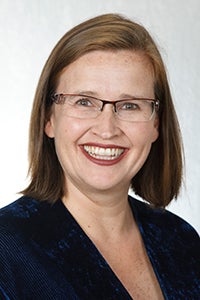Commissioner's Foreword
Sex Discrimination Commissioner, Kate Jenkins
The Australian Human Rights Commission’s National Report on Sexual Assault and Sexual Harassment at Australian Universities outlines the Commission’s findings on the prevalence and nature of sexual assault and sexual harassment at all Australian universities. It is based on analysis of the data collected through a national survey and a separate submissions process conducted over the second half of 2016.
All 39 universities in Australia, through their peak body Universities Australia, have committed to this work. We appreciate the assistance of Vice-Chancellors, Universities Australia and other university staff who delivered the national survey to their student bodies. We also thank The Hunting Ground Australia Project, whose advocacy has provided a platform for this project and who provided seed funding to the Commission, for their contribution.
This report would not have been possible without the assistance of students who completed the survey or made a submission. On behalf of the Commission, I would like to acknowledge the contribution of those who have shared their experiences. For those who have experienced sexual assault or sexual harassment, it is not easy to relive your experiences. I thank you for your courage and for the guidance and knowledge that you have provided by doing so.
Many other people deserve acknowledgement for their contribution to this project. I wish to thank in particular: Karen Willis, Dr Damian Powell, Professor Andrea Durbach, Allison Henry, Mary McRae, Sharna Bremner, Heidi La Paglia, Nina Funnell, Anna Hush and Abby Stapleton.
A range of organisations provided assistance and advice to the Commission throughout the project. In particular, I acknowledge the contribution made by End Rape on Campus, the Hunting Ground Australia Project, the Australian Human Rights Centre at the University of New South Wales and the National Union of Students.
This report comes after years of advocacy by survivors of sexual assault, student representatives and other organisations to raise public awareness of the issue of sexual assault and sexual harassment at Australian universities.
Sexual assault and sexual harassment have a devastating impact on individuals – physically, emotionally and psychologically. The fact that this behaviour is occurring at universities is of serious concern. The implications are far-reaching for students, due to their vulnerability at this stage of their life cycle where they are maturing into adults and may be away from home for the first time. There are often severe consequences for how they access education and the completion of their studies, which in turn can impact their future careers.
The prevalence of sexual assault and sexual harassment at universities has received considerable focus in a number of countries over recent years, most notably in the United States and United Kingdom. In Australia, there has been a desire to understand the extent to which sexual assault and sexual harassment affects our students and ensure best practice responses, based on comprehensive data.
The information contained in this report paints a disturbing picture of the prevalence rates of these behaviours at Australian universities. Importantly, it also explores how universities have responded to disclosures and reports of incidents of sexual assault and sexual harassment.
There are three unavoidable conclusions of this report:
- sexual assault and sexual harassment are far too prevalent in university settings as they are in the broader community
- there is significant underreporting of sexual assault and sexual harassment to the university, and
- universities need to do more to prevent such abuse from occurring in the first place, to build a culture of respect and to respond appropriately by supporting victims of abuse and sanctioning perpetrators.
The results of the prevalence survey are a reflection of the unacceptably high levels of sexual violence in the broader Australian community. We know from existing research that young people, especially young women between the ages of 18 and 24, are at an increased risk of experiencing sexual violence.
The rates of violence experienced by young people are a call to action for Australian universities. Every young person who is contemplating a university education is entitled to expect that they will be able to study in an environment that is safe and promotes their well- being.
Swift and deliberate action with clear accountability is required by universities to improve their response to sexual violence.
Australia is the first country where an independent human rights agency has been engaged to gather comprehensive national data and share this transparently.
This is a strong indication that Vice-Chancellors in this country intend to act on the findings of this report.
The report contains a series of recommendations to assist universities to deal with the challenges that currently exist. I encourage them to move swiftly to indicate what they will do as a result of this report. And I encourage universities to do so in an inclusive manner that involves robust dialogue with students and staff alike, and responds in a fully integrated way across the full life and community of the university.
The benefits of addressing these issues head on extends beyond the individual reputations of universities and safety of their students. It is critical in informing general attitudes toward women and community safety among the next generation of leaders in Australia.
Implementation of the recommendations in this report can therefore contribute to changing the national culture to one that does not tolerate sexual assault or sexual harassment in any form.
I am committed to assisting universities in this process however I can, and to ensuring that survivors receive the support they need.
This report is the starting point for a new conversation, focused on ensuring that all students can access education in environments that are safe and which enable them to achieve their full potential.
Kate Jenkins
Sex Discrimination Commissioner
July 2017

